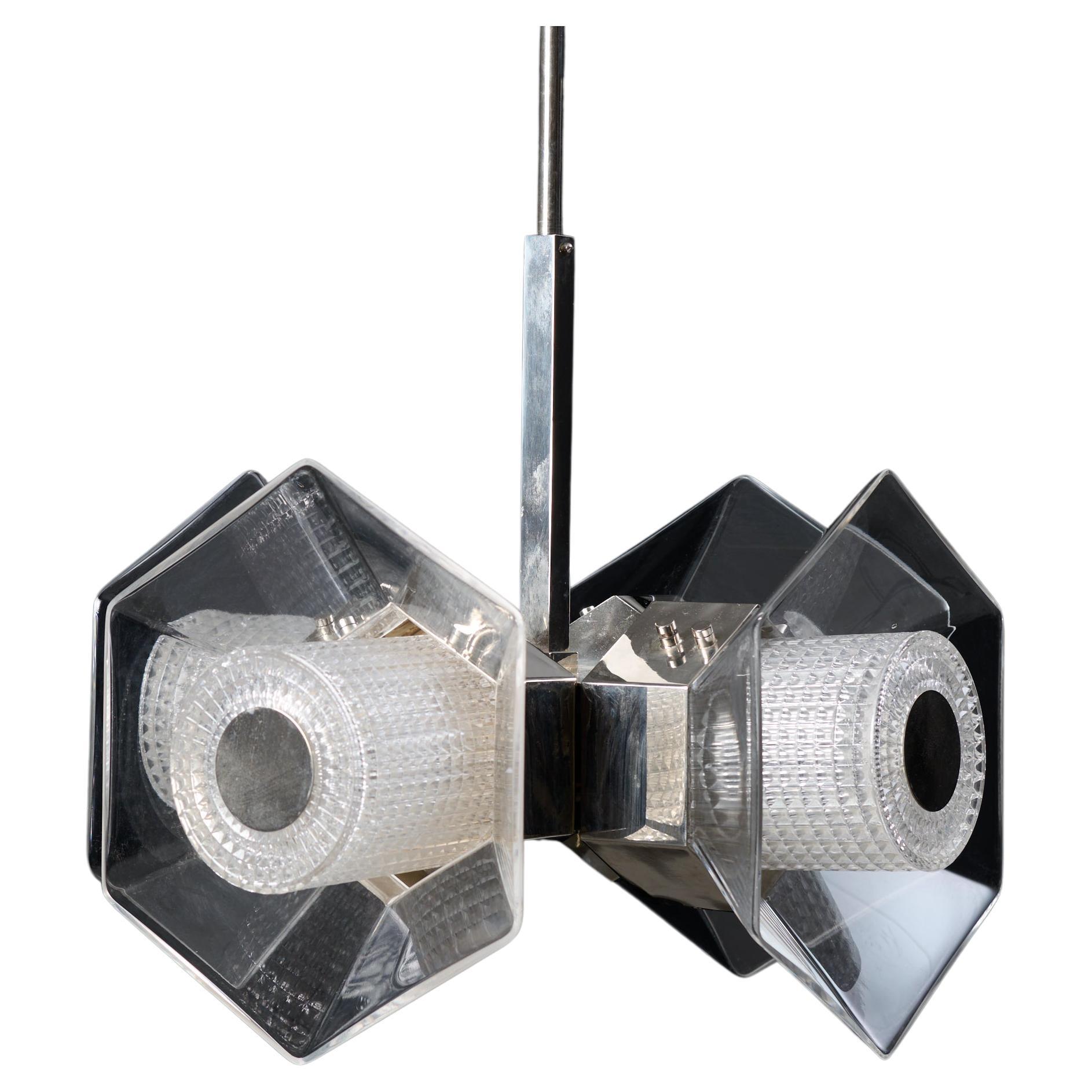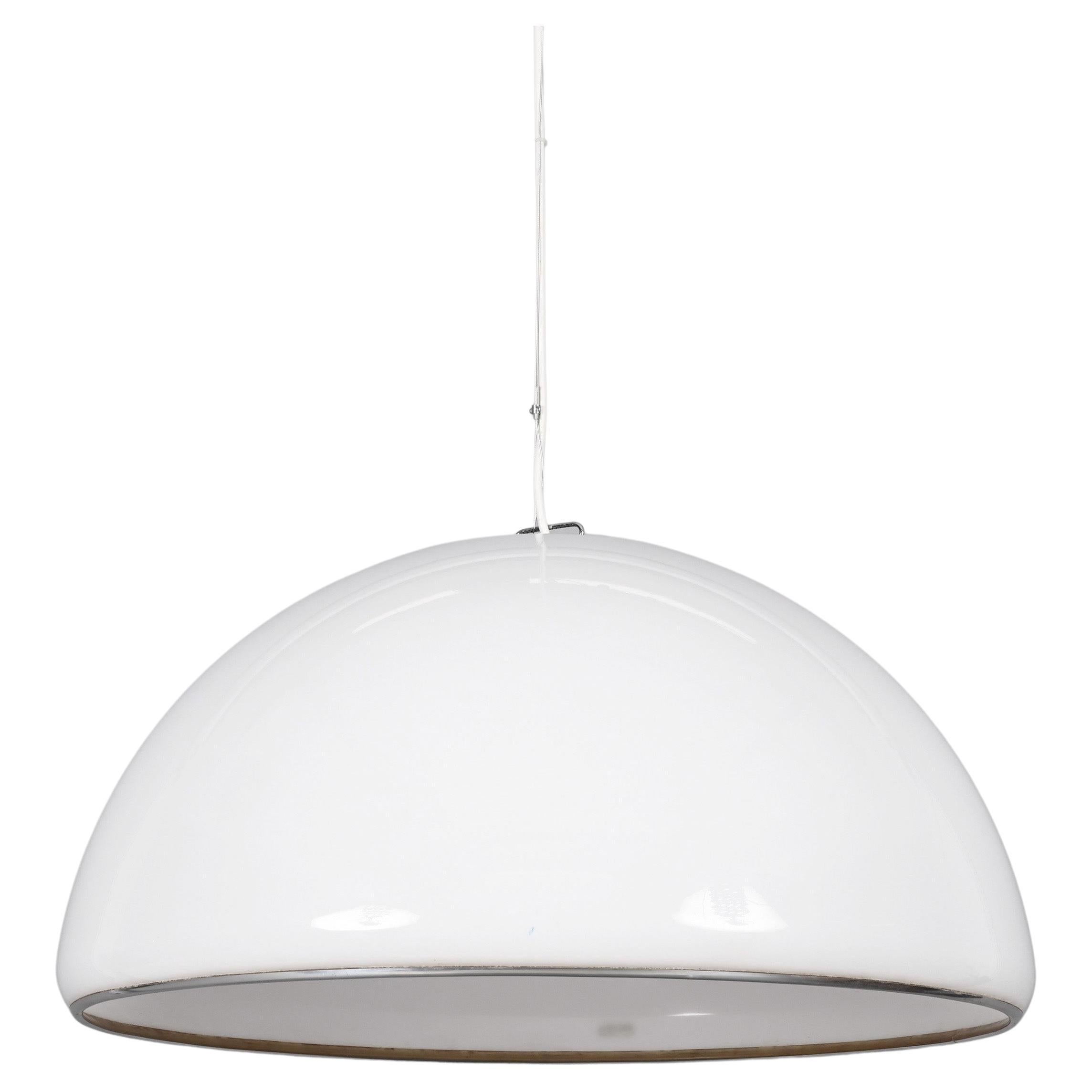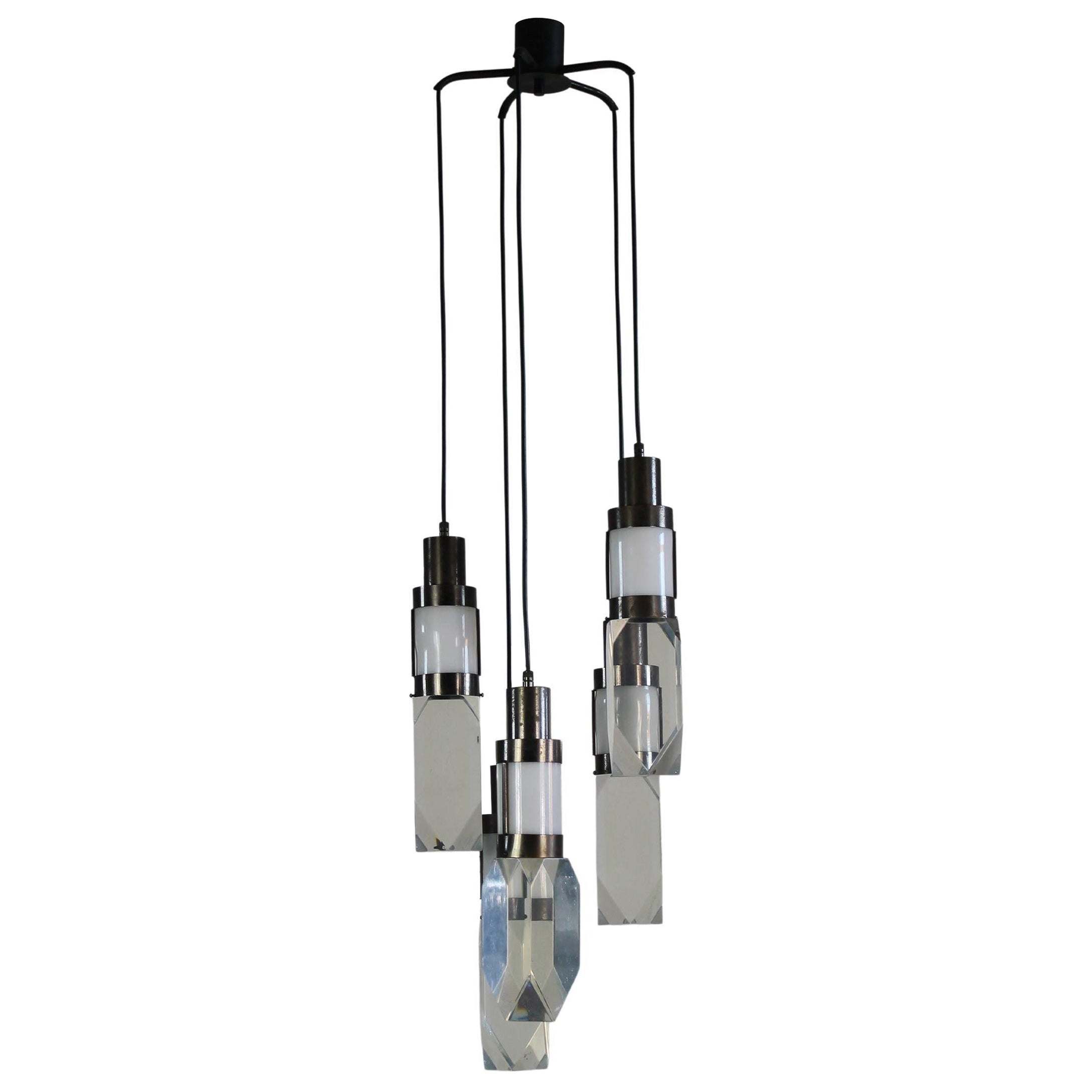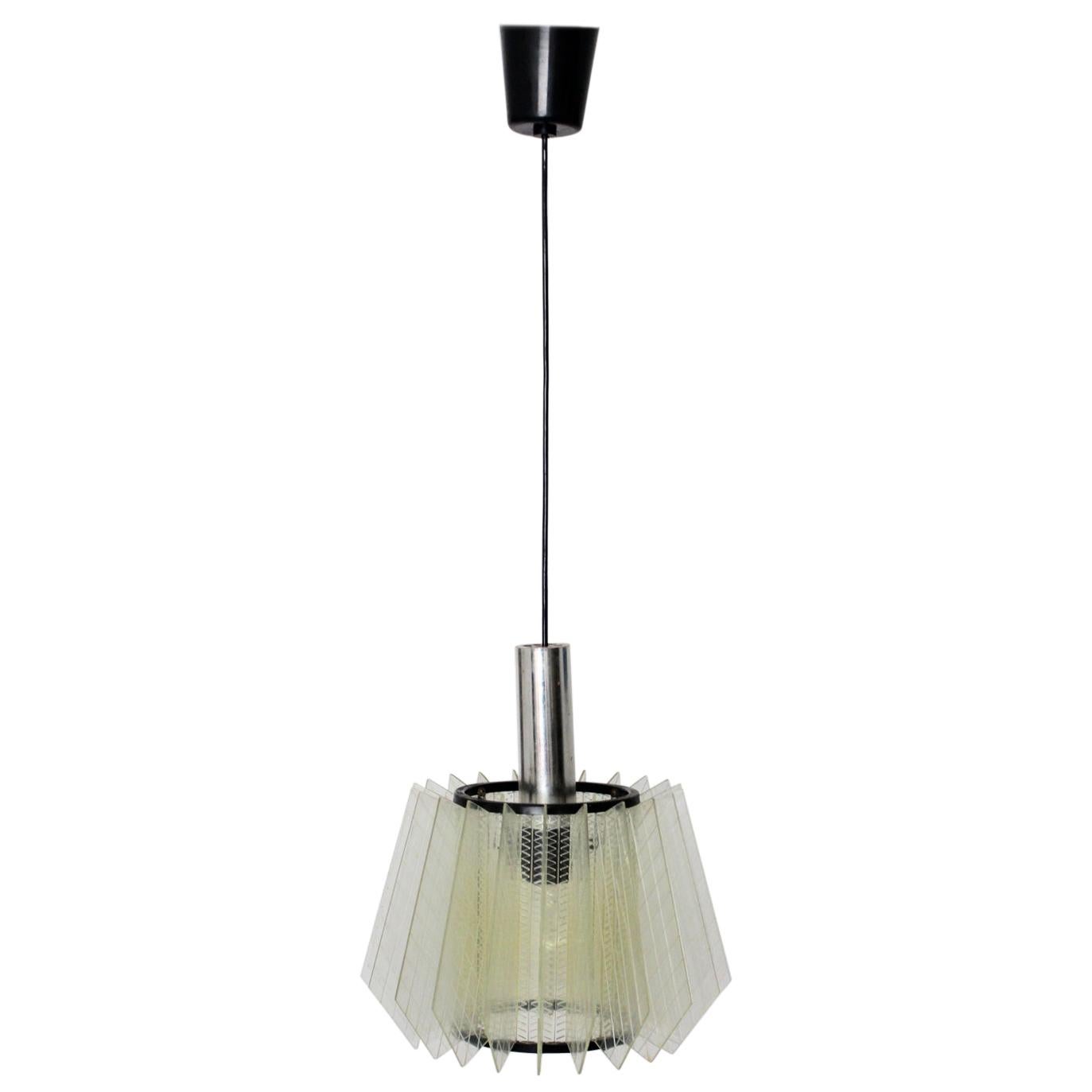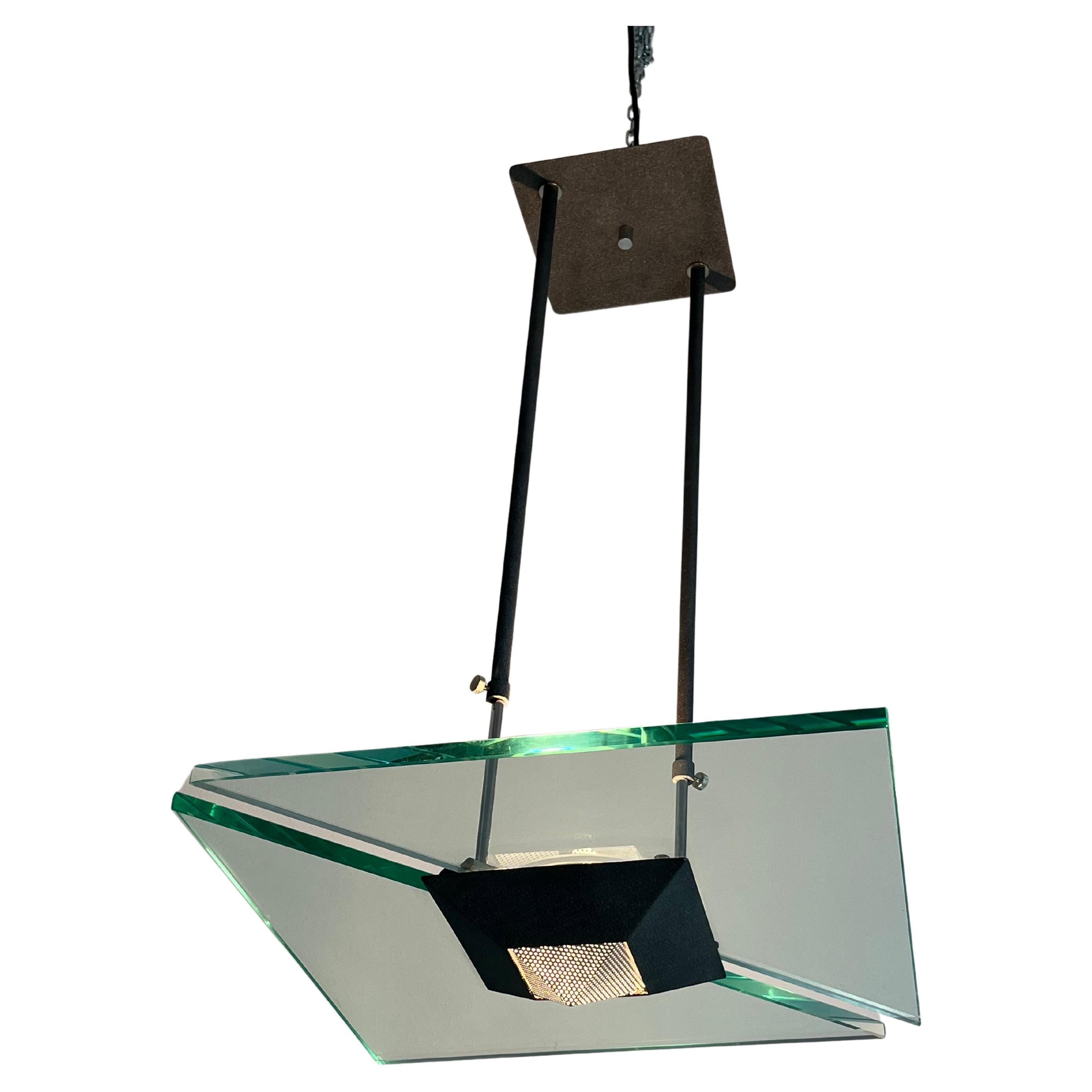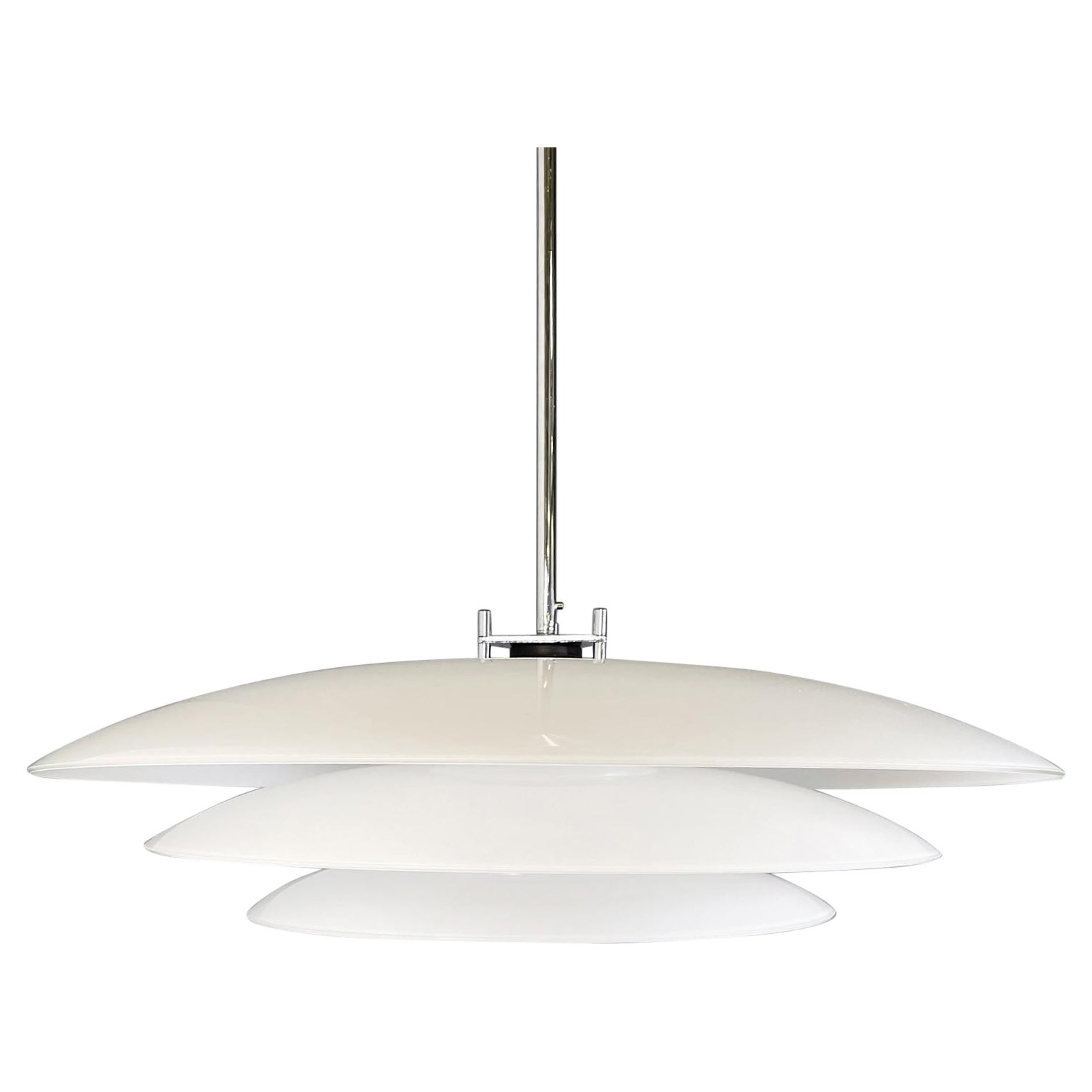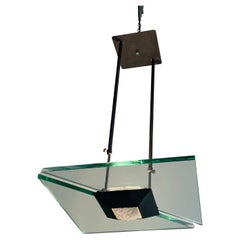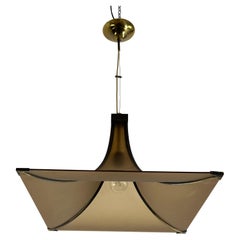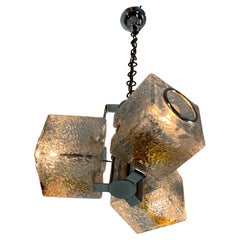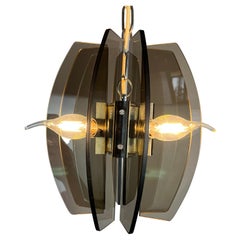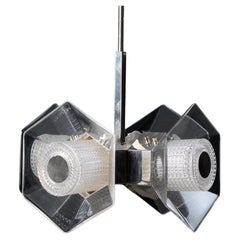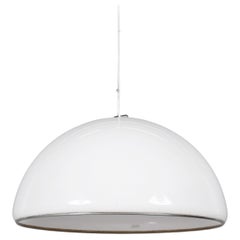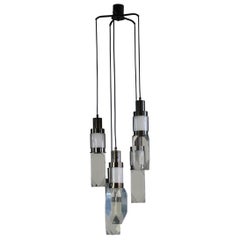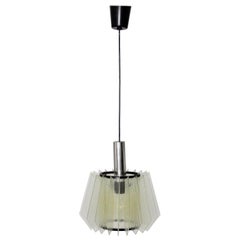Items Similar to Vintage iGuzzini Plexiglass Chandelier, Italian Design, 1970s
Video Loading
Want more images or videos?
Request additional images or videos from the seller
1 of 13
Vintage iGuzzini Plexiglass Chandelier, Italian Design, 1970s
$1,146.48
£847.78
€960
CA$1,574.80
A$1,751.09
CHF 916.72
MX$21,389.84
NOK 11,519.55
SEK 10,836.45
DKK 7,309.66
About the Item
Vintage iGuzzini plexiglass chandelier, Italian design, 1970s
Intact and in excellent condition, E27 lamp.
- Attributed to:iGuzzini (Designer)
- Dimensions:Height: 30.32 in (77 cm)Width: 20.87 in (53 cm)Depth: 20.87 in (53 cm)
- Voltage:220-240v
- Materials and Techniques:Plexiglass,Other
- Place of Origin:
- Period:
- Date of Manufacture:1970
- Condition:
- Seller Location:Palermo, IT
- Reference Number:1stDibs: LU8379238042002
About the Seller
5.0
Platinum Seller
Premium sellers with a 4.7+ rating and 24-hour response times
Established in 2023
1stDibs seller since 2023
208 sales on 1stDibs
Typical response time: <1 hour
- ShippingRetrieving quote...Shipping from: Palermo, Italy
- Return Policy
Authenticity Guarantee
In the unlikely event there’s an issue with an item’s authenticity, contact us within 1 year for a full refund. DetailsMoney-Back Guarantee
If your item is not as described, is damaged in transit, or does not arrive, contact us within 7 days for a full refund. Details24-Hour Cancellation
You have a 24-hour grace period in which to reconsider your purchase, with no questions asked.Vetted Professional Sellers
Our world-class sellers must adhere to strict standards for service and quality, maintaining the integrity of our listings.Price-Match Guarantee
If you find that a seller listed the same item for a lower price elsewhere, we’ll match it.Trusted Global Delivery
Our best-in-class carrier network provides specialized shipping options worldwide, including custom delivery.More From This Seller
View AllItalian Murano Glass Chandelier Attributed To Fontana Arte, 1980s
By Fontana Arte
Located in Palermo, IT
Italian Murano glass chandelier attributed to Fontana Arte, 1980s
Metal structure. Halogen lamp. Good condition, glass intact.
Warehouse funds, never used, found in a warehouse of a...
Category
Vintage 1980s Italian Chandeliers and Pendants
Materials
Metal
Mid-Century Glass and Brass Chandelier Italian Design 1960s
Located in Palermo, IT
Mid-Century glass and brass chandelier of 1960s Italian design
E27 lamp, good condition, small signs of aging.
Category
Vintage 1970s Italian Chandeliers and Pendants
Materials
Brass
3-Light Murano Glass Chandelier Attributed To Toni Zuccheri For VeArt, 1970s
By VeArt, Toni Zuccheri
Located in Palermo, IT
3-light Murano glass chandelier attributed to Toni Zuccheri for VeArt, 1970s
Glasses intact, E27 lamps. Chromed metal structure. Good condition, small signs of aging. Height 40 cm, 1...
Category
Vintage 1970s Italian Chandeliers and Pendants
Materials
Metal
Murano Glass Chandelier, Veca, Italy, 1970
By VECA
Located in Palermo, IT
Murano glass chandelier, Veca, Italy, 1970.
The glasses are in excellent condition and intact. Small signs of aging on the chromed metal.
Category
Vintage 1970s Italian Chandeliers and Pendants
Materials
Glass
Mid-Century Metal and Methacrylate Guzzini Italian Chandelier, 60s
By Guzzini
Located in Palermo, IT
Guzzini chandelier in metal and methacrylate, Italy, 60s
I mounted the lamp externally but it is possible to remove the metal part and reinsert it in order to house the lamp inside ...
Category
Vintage 1960s Italian Chandeliers and Pendants
Materials
Metal
7-Light Chandelier "Cubic" Model By Gaetano Sciolari, 1970s
By Gaetano Sciolari
Located in Palermo, IT
7-light chandelier "Cubic" model by Gaetano Sciolari, 1970s
Chromed metal structure and Murano glass lamp holder.
Intact and in good condition, E14 lamps.
Category
Vintage 1970s Italian Chandeliers and Pendants
Materials
Metal
You May Also Like
Vintage Glass and Chrome Ceiling Light, Mid-Century Modern Likely Italian
Located in Kramfors, SE
Vintage chrome ceiling light from the 1960s to 1970s. The light is likely Italian and has a frame in chromed metal. Four light shades in clear glass with frosted inner shades. Height...
Category
Mid-20th Century Italian Mid-Century Modern Chandeliers and Pendants
Materials
Chrome
Mid-Century Harvey Guzzini Metal and White Plexiglass Italian Chandelier, 1970s
By iGuzzini, Guzzini, Harvey Guzzini
Located in Roma, IT
Fantastic mid-century Guzzini metal and white plexiglass chandelier. Harvey Guzzini designed this fantastic piece in Italy during the 1970s.
This amazing item is fantastic thanks to its pure and smooth lines combined with clean materials.
An astonishing pendant lamp that will enrich a midcentury living room or kitchen. The item is perfect for a spacage space too.
Harvey Guzzini is often mistakenly thought to be the name of a lighting designer active in the 1960s and 1970s. But in fact, the label belongs to a lighting manufacturing company, which was founded by six Guzzini brothers—Raimondo, Giovanni, Virgilio, Giuseppe, Adolfo and Giannunzio—who were inspired by the 1950 film Harvey starring James Stewart. Compounding the historical record even further, it seems that the Guzzini company rebranded many times in the 20th century, going by, at various points, Harvey Creazioni, Harvey Guzzini, Guzzini, iGuzzini, and Illuminazione Guzzini.
Harvey Creazioni was originally founded in 1959 in Recanti (on the east-central coast of Italy) by Raimondo, focusing on the production of copper-plated decorative objects. Four years later, in June 1963, the six brothers joined together and established Harvey Creazioni di Guzzini, expanding production to include pendant lighting, sconces, and lamps, floor lamps. The brothers employed architect-designer Luigi Massoni—who was introduced to the Guzzini brothers by leading plastic importer Maurizio Adreani—as head of design, branding, public relations, and advertising.
Famous Harvey Guzzini designs include Massoni and Luciano Buttura's Mushroom Table Lamp (1965), as well as the in-house designed Arc Floor Lamp (1968), Faro Table Lamp (1970), and Toledo Table Lamp (1973). Studio 6G, an interning design team, developed the collectable Clan Table Lamp (1968); and designers Ermanno Lampa and Sergio Brazzoli were responsible for the Nastro Series (1970), Orione Pendant (1970), Sirio Table Lamp (1970), Alba Floor Lamp (1973), Albanella Table Lamp...
Category
Vintage 1970s Italian Mid-Century Modern Chandeliers and Pendants
Materials
Metal
Gaetano Missaglia Ceiling Lamp with Lampshades in Lucite Plexiglass 1970s Italy
By Gaetano Missaglia
Located in Montecatini Terme, IT
Mid-Century Modern ceiling lamp with five lampshades in chromed metal and lucite plexiglass.
Designed by Gaetano Missaglia and manufactured in Italy during the 1970s.
Acrylic, also known as the brand names lucite or Plexiglas, was developed in the 1930s. Its scientific name is Poly(methyl methacrylate), or PMMA, and it is a type of thermoplastic, which is a plastic Material that is moldable at extremely hot temperatures and solid once cool.
The company that created acrylic licensed it in two ways; first as Plexiglas to be a glass replacement, and afterwards as lucite for commercial uses in 1937. Commercially, lucite was used in jewelry, handbags, and cosmetics packaging. Plexiglas, in comparison, was often used for larger projects, such as aircraft windows, lenses for lighthouses, and aquariums.
Before it was used widespread for furniture, acrylic was being utilized for military purposes, as wartime was quickly approaching. During World War 2 (1939-1945), the country’s resources were mostly directed to military uses, and acrylic was no different. Acrylic, as Plexiglas, was used to help the military, including as airplane windshields and submarine periscopes.
Despite that, some people began using acrylic to make furniture. In 1939, Helena Rubinstein, a wildly successful cosmetics mogul and art collector, commissioned to Ladislas Medgyesan an entire suite of acrylic furnishings for her NYC apartment, including an illuminated acrylic bed in her bedroom and acrylic chairs for business meetings.
When the war ended in 1945, acrylic was ready to be worked with in design on a larger scale. The company licensed lucite widely, making it much more available across every industry. It steadily gained momentum in the world of design, with artists and designers being inspired by its moldability and translucense. In 1959, French designer Erwine Laverne told a New York Times reporter, “The most important element in rooms is people, not furniture,” speaking to the growing popularity and importance of the clear furniture.
But acrylic furniture hit its peak popularity in the 1960s and ‘70s, as more acrylic furniture designers and artists entered the scene. Glass artists began to take more of an interest in acrylics, especially taking advantage of acrylic’s flexibility, light weight, cost, and capacity to refract and filter light. Designers like John Mascheroni and Charles Hollis Jones, known as the Godfather of lucite, created iconic pieces that still look beautiful in today’s modern home.
Designers and artists alike loved the durability and look of acrylic. As Charles Hollis Jones put in an interview with Ravelin Magazine,
“I worked a lot with lucite when I first started. When I worked with the company that wanted me to go to Europe, they had me work with glass, ceramic, enamel. I went over there and the glass was always in the wrong color and it always broke. When the earthquakes came, I got visual proof of that. I like to work with acrylic because it does two wonderful things that glass doesn’t. It’s shatter-proof, first of all. I can also change the microstructure and make it one-tenth the strength of steel. And the most important thing it does: it carries light. Glass reflects light. lucite holds it and carries it. If you play with it, you can make a lens to look at something in space. It’s that good. It’s purer than crystal.”
In fact, acrylic was often used in chandeliers as well, mixed with other materials to make incredible striking designs that would have been much more difficult to achieve with glass.
Recently, acrylic furniture has once again risen in popularity. While many of the designs are timeless, more designers are coming forward with acrylic furniture for the modern home. In 2002, designer Philippe Starck introduced his Louis Ghost Chair, and the trend has only grown from there.
You’ll now find entirely acrylic pieces of home furnishings and accessories, as well as acrylic-detailed furniture all across the market. With so many designs, options, and knock-offs all across the market, we at clear home design...
Category
Vintage 1970s Italian Mid-Century Modern Chandeliers and Pendants
Materials
Metal
Mid-Century Modern Vintage Acrylic Glass Chandelier Pendant, circa 1960
Located in Vienna, AT
Mid-Century Modern vintage chandelier or pendant features many laminate acrylic glass parts arranged like a fan.
The vintage chandelier shows one E 27 socket.
Good vintage condition ...
Category
Vintage 1960s Mid-Century Modern Chandeliers and Pendants
Materials
Plastic, Acrylic
Italian modern Chandelier in opaline glass and chromed metal, 1980s
Located in MIlano, IT
Italian modern Chandelier in opaline glass and chromed metal, 1980s
Chandelier in opaline glass and chromed metal. The opaline glass diffuser has three round and curved plates, inter...
Category
Vintage 1980s Italian Modern Chandeliers and Pendants
Materials
Metal
Italian Glass Chandelier, 1980s
Located in Praha, CZ
Tubular colored and clear glass chandelier made in Italy in 1980s.
Height can be adjusted.
Very good original condition.
1x60W, E25-E27 bulb
US wiring compatible
Category
Vintage 1980s Italian Mid-Century Modern Chandeliers and Pendants
Materials
Metal
More Ways To Browse
1970s Plexiglass
Botanical Chandelier
Cherry Pendant Lamp
Five Tier Crystal Chandelier
Hermes Chandelier
Large Hanging Lanterns
Murano Flower Chandelier Green
Pink Glass Tube Chandelier
Pulley Pendant
Russian Bronze Chandeliers
Teak And Opaline Glass Pendant Lamp
Tubular Murano Chandelier
Venini 6 Light Murano Glass Chandelier
Versailles Chandelier
Wrought Iron Candelabra Chandeliers
Bird Cage Lighting
Colonial Light Fixture
Eagle Chandelier
